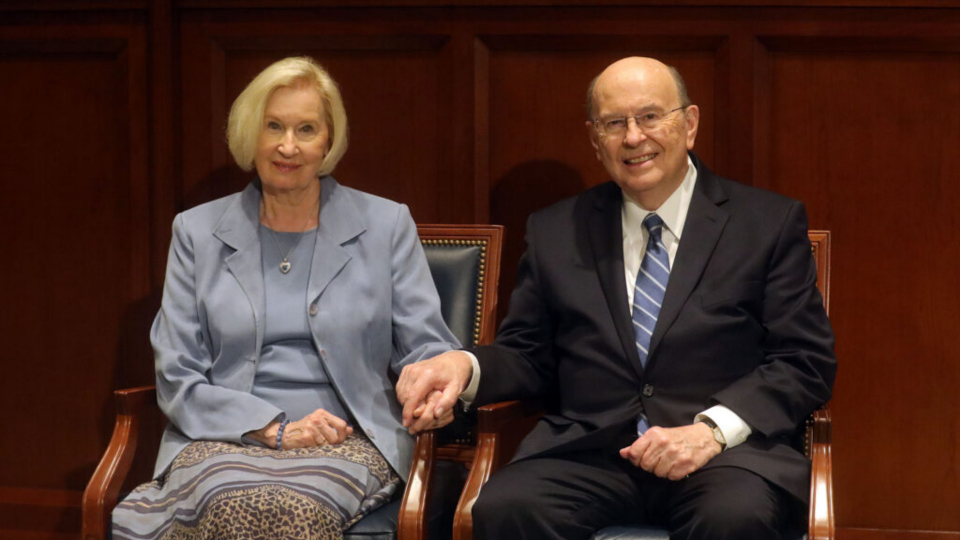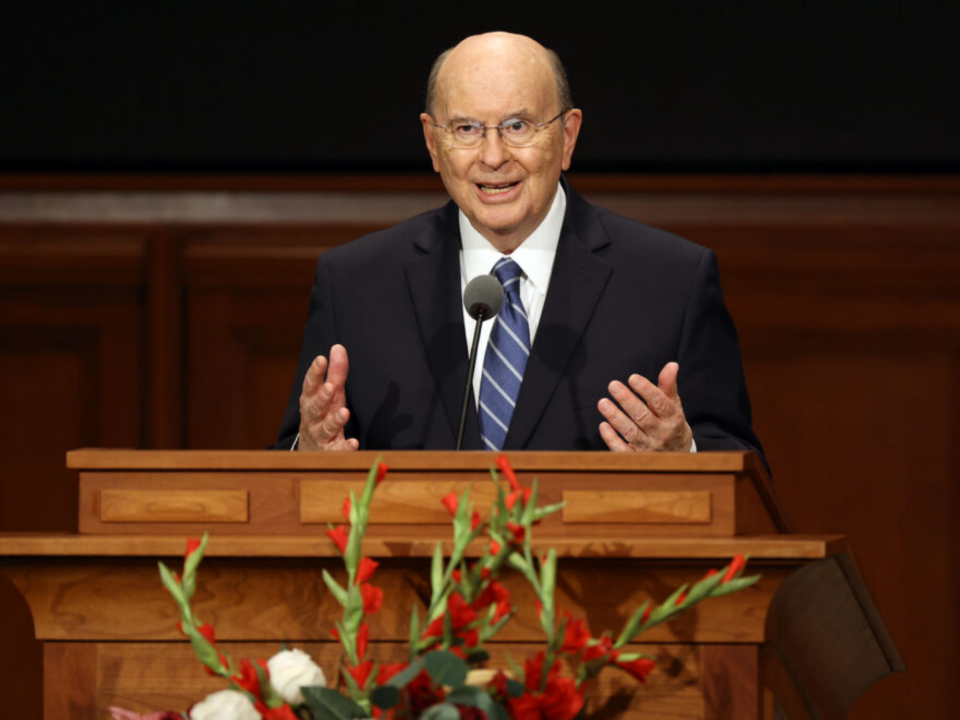
Cook-BYU-Idaho
Elder Quentin L. Cook of the Quorum of the Twelve Apostles speaks to BYU-Idaho faculty and staff from the Church Office Building in Salt Lake City on September 2, 2021. Photo by Kristin Murphy, courtesy of Church News.Copyright 2021 Deseret News Publishing Company.
This story appears here courtesy of TheChurchNews.com. It is not for use by other media.
By Sarah Jane Weaver, Church News
A few months ago, Elder Quentin L. Cook had the opportunity to meet virtually with two officials reviewing the accreditation of BYU-Idaho.
He spoke of the excellent teaching provided by the institution, and then — without hesitation — emphasized the fact that there is a strong culture of belonging at BYU-Idaho.
“It is infectious, and it is extended to everyone — members and nonmembers,” said Elder Cook of the Quorum of the Twelve Apostles. “It is extended to those of different races and nationalities. Belonging is an integral part of BYU-Idaho.”
Speaking to BYU-Idaho faculty and staff in a talk broadcast to the university on Tuesday, Sept. 7, Elder Cook addressed the topic “Foundations for Eternity.”
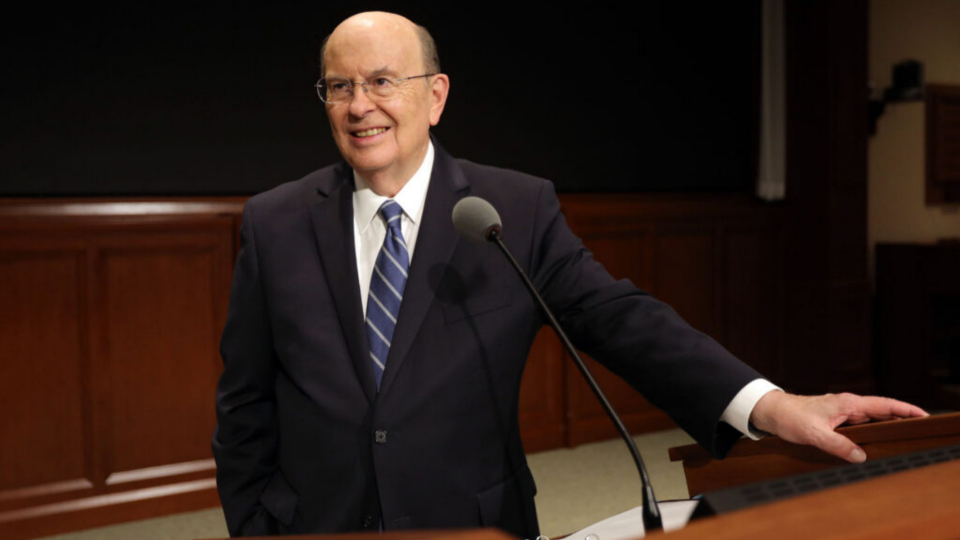
Cook-BYU-Idaho
Elder Quentin L. Cook of the Quorum of the Twelve Apostles chats before filming a speech for BYU-Idaho faculty and staff from the Church Office Building in Salt Lake City on September 2, 2021. Photo by Kristin Murphy, courtesy of Church News. Copyright 2021 Deseret News Publishing Company.
His remarks came as BYU-Idaho is celebrating its 20th anniversary as a four-year institution.
Quoting the BYU-Idaho mission statement, Elder Cook noted that the university was “founded and is supported and guided by The Church of Jesus Christ of Latter-day Saints. Its mission is to develop disciples of Jesus Christ who are leaders in their homes, the Church and their communities.”
Elder Cook said he has long admired the address then-Elder Spencer W. Kimball, who would become the Church’s 12th president, gave in 1967 to BYU’s faculty and staff titled “Education for Eternity.”
Noting the talk is equally applicable to BYU-Idaho’s faculty and staff today, Elder Cook said Elder Kimball challenged BYU and its faculty and staff to lift their vision in many areas. He also challenged them to aspire to a prophecy of President John Taylor, who declared: “You will see the day that Zion will be far ahead of the outside world in everything pertaining to learning of every kind as we are today in regard to religious matters.”
Elder Cook said he personally believes “BYU-Idaho has a unique role to play in achieving these principles, and a unique role in the total Church education system with respect to Elder Kimball’s advice.”
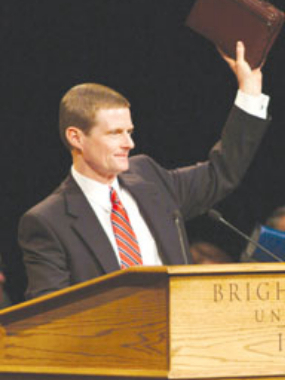
Cook-BYU-Idaho
Elder David A. Bednar raises his scriptures in what has become tradition at BYU-Idaho devotional assemblies. Photo by Michael Lewis, courtesy of Church News.Copyright 2021 Deseret News Publishing Company.Elder Cook also quoted Elder David A. Bednar of the Quorum of the Twelve Apostles and a former BYU-Idaho president, who issued a “warning to BYU-Idaho” on three different occasions.
“If the day ever were to come that intellectual arrogance, a lack of appreciation and a spirit of demanding entitlement take root on this campus — among the students, faculty, employees or the administration, or within the community — then in that day the spirit of Ricks will be well on the way to being extinguished — and the heavenly influence and blessings that have prospered this institution and the people associated with it will be withdrawn,” said Elder Bednar. “Conversely, as long as intellectual modesty, humility, gratitude, obedience and frugality continue to characterize those who learn and serve at BYU-Idaho, then this university will shine forth ever brighter as a beacon of righteousness and of inspired educational innovation.”
Elder Cook said BYU-Idaho is shining forth. “Maintaining a laserlike focus on our responsibility to help build faith in Jesus Christ and in His restored Church should drive our efforts,” he said.
Asking the congregation to turn to Doctrine and Covenants Section 105, Elder Cook spoke of Zion’s Camp — a group of men organized by Joseph Smith who marched from Kirtland, Ohio, to Clay County, Missouri, during May and June of 1834 in an unsuccessful attempt to “redeem Zion” and regain the land from which the Saints had been expelled.
Some declared that Zion’s Camp a failure; but Orson F. Whitney reported that for those who participated “it was no failure. The trial of their faith was complete.”
Speaking of Zion’s Camp, Wilford Woodruff in December 1869 said: “We gained an experience that we never could have gained in any other way. We had the privilege of beholding the face of the Prophet, and we had the privilege of traveling a thousand miles with him and seeing the workings of the Spirit of God with him, and the revelations of Jesus Christ unto him and the fulfillment of those revelations.”
Elder Cook said he had the same feelings about President Russell M. Nelson after extensive travel with him in Central and South America.
In February 1835 in Kirtland, the Prophet Joseph Smith explained some of the significance of Zion’s Camp to the brethren who had participated. “He told them: ‘God did not want you to fight. He could not organize His kingdom with 12 men to open the gospel door to the nations of the earth … unless He took them from a body of men who had offered their lives, and who had made as great a sacrifice as did Abraham.’”
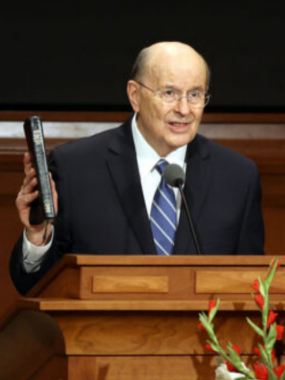
Cook-BYU-Idaho
Elder Quentin L. Cook of the Quorum of the Twelve Apostles speaks to BYU-Idaho faculty and staff from the Church Office Building in Salt Lake City on September 2, 2021. Photo by Kristin Murphy, courtesy of Church News.Copyright 2021 Deseret News Publishing Company.Elder Cook said it is interesting that most of the initial Apostles of the Restoration and all of the first Quorum of the Seventy were veterans of the Camp. “It is fair to say that most of the leadership of the entire Church for the next 50 years came from those who participated in Zion’s Camp.
“We don’t know all the reasons we have challenges in this life. We do know some challenges refine us and prepare us for the future, both here on Earth and in the eternities.”
Elder Cook said he has had the spiritual impression that many lessons resulting from the COVID-19 pandemic will bless the kingdom now and in the future.
While the “leadership side of Zion’s Camp is profound, the underlying bright line doctrine is even more important,” said Elder Cook. First, the redemption of Zion “… cannot be brought to pass until mine elders are endowed with power from on high” (Doctrine and Covenants 105:11), and second, the Lord’s Saints must always provide for the “poor and afflicted among them” (Doctrine and Covenants 105:3).
Recounting the history of Zion’s Camp was necessary to understand the four major principles, said Elder Cook. “In addition to everything else that you will teach as faculty members in preparing students for their day-to-day lives, these overarching principles are crucial for them to understand.”
Latter-day Saints, particularly those who work with the rising generation, must emphasize the four principles that are the work of salvation and exaltation and are set forth in Doctrine and Covenants Section 110 and in the General Handbook:
- Living the gospel of Jesus Christ
- Caring for those in need
- Inviting all to receive the gospel
- Uniting families for eternity
Caring for those in need is a lifetime commitment for every member of the Church. “If we are to be acceptable to the Lord, and if the younger generations are going to fulfill their responsibilities, we need to care for those in need.”
Referencing fast offerings, ministering and humanitarian contributions, Elder Cook said: “We will bless the rising generation if we stress the principles of caring for those in need and allow them to sink deep into their souls. We also need to help others become self-reliant.”
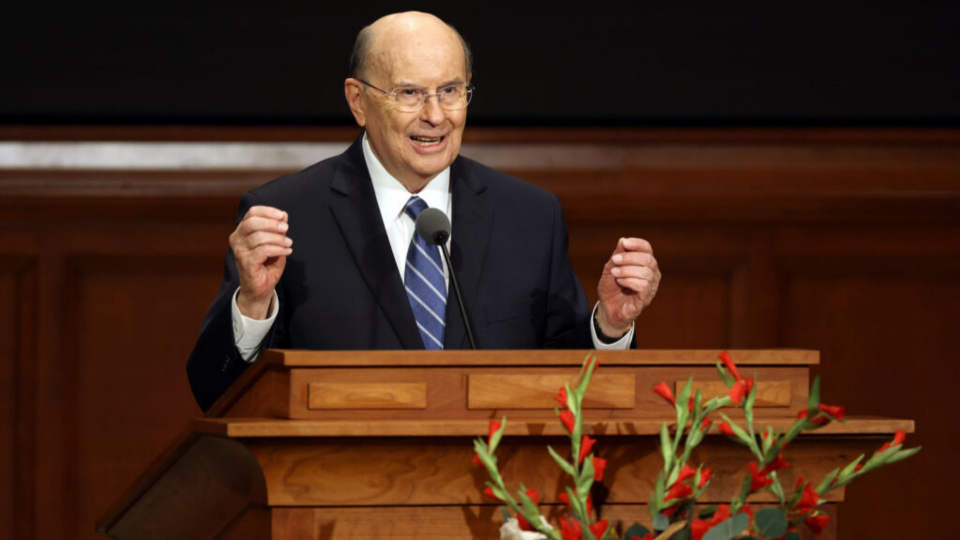
Cook-BYU-Idaho
Elder Quentin L. Cook of the Quorum of the Twelve Apostles speaks to BYU-Idaho faculty and staff from the Church Office Building in Salt Lake City on September 2, 2021. Photo by Kristin Murphy, courtesy of Church News.Copyright 2021 Deseret News Publishing Company.
The keys for sharing the gospel are equally significant, he added. “We are preparing young people for missions, but also to be missionaries all their lives regardless of their other callings or circumstances.”
The Church’s emphasis on “love, share and invite” describes the responsibility of all Latter-day Saints to be emissaries of the Savior.
The keys for redeeming the dead and the sealing power are essential for the rising generation — regardless of what they are studying, regardless of what their particular interests are, said Elder Cook. “Each student should have instilled in their hearts a desire to receive the power from on high represented by temple endowments and sacred temple covenants. … I know of no other institution that has placed greater emphasis on the temple than BYU-Idaho. This emphasis and the powerful teaching that has occurred in the Rexburg temple is a model for how to emphasize the temple and the covenants, made there with God, and the blessings in an educational setting.”
Concluding, Elder Cook said, “I am confident that this marvelous institution will be a seminal voice for building faith in the Lord, Jesus Christ, and His Atonement and preparing for the Second Coming of the Savior.”
